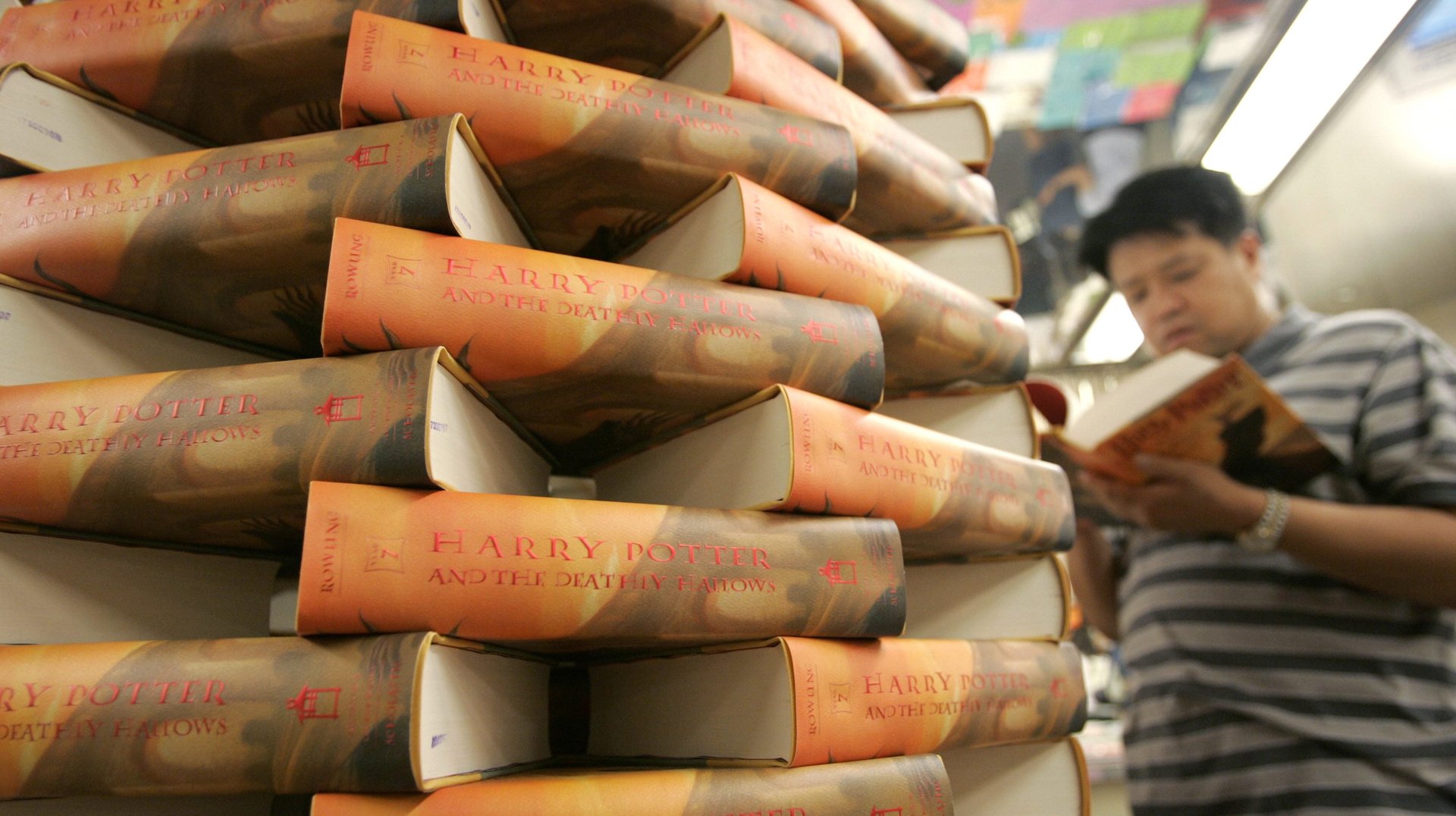Harvard divinity school graduates are turning Harry Potter into a religion
Fandom often inspires the same zealousness that faith does, and the devotion to Harry Potter is no exception. Since the release of the first Harry Potter book in 1997, the fantastical series about a young wizard has become the best-selling of all time, with a film franchise and merchandise worth more than $21 billion combined (and that’s not including the theme park in Orlando).


Fandom often inspires the same zealousness that faith does, and the devotion to Harry Potter is no exception. Since the release of the first Harry Potter book in 1997, the fantastical series about a young wizard has become the best-selling of all time, with a film franchise and merchandise worth more than $21 billion combined (and that’s not including the theme park in Orlando).
Now, two academics are exploring whether Harry Potter could be a religion in a new weekly podcast called “Harry Potter and the Sacred Text.” Vanessa Zoltan and Caspar ter Kuile, both graduates of the Harvard Divinity School, launched the 25-minute podcast in May to answer the question, “What if we read the books we love as if they were sacred texts?”
“Just as Christians read the Bible, Jews the Torah and Muslims read the Quran, we are embarking on a 199-episode journey (one chapter an episode, released weekly), to glean what wisdom and meaning we can make from J.K. Rowling’s beloved novels,” the scholars explain on their website.
The Potter faithful have followed: The podcast has soared to the top of the religion and spirituality charts on iTunes, drawing in about 55,000 to 60,000 listeners each week.
“The Harry Potter universe has a lot of things that look a lot like religion,” Zoltan, an assistant Humanist chaplain at Harvard, told the Huffington Post.
The stories meet that mark in several regards, she explained. In addition to having a central text for followers to reference, the series ”has rituals. It has sayings. You can say ‘mischief managed!’ Or, ‘Raise a glass to the Boy who Lived!’ You have certain arguments; there are these [conventions] where they do all sorts of rituals.”
The themes of the book series and the podcast—love, loneliness, generosity, and regret—center on charting an ethical path: “The same things are in these books as are in the traditional sacred texts,” Zoltan said.
Christian scholars have drawn parallels between Harry Potter and traditional Christian imagery and tradition before. When the series was first published, it provoked backlash from some Christian groups for promoting witchcraft and the occult. Some Muslim groups issued online religious decrees against the series.
“Rowling’s 4100-page epic was the best and most powerful contemporary retelling of the gospel narrative I’d encountered,” said Greg Garrett, author of “One Fine Potion: The Literary Magic of Harry Potter,” a book that delves into the connections between Christianity and the Potter saga.
But listeners of the Potter-cast are happy to discover their own truths in the beloved books.
“Not everyone can find themselves in the Bible or the Torah or the Quran,” listener Jenn Stark told the Boston Globe. In this sense, Stark explained, Harry Potter is a modern-day version of spirituality that’s “unorthodox and radical and something there’s been a real need for.”